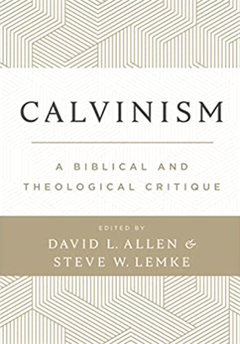Critiquing Calvinism

... the Remonstrants were concerned about the teaching that God forces his grace on sinners irresistibly. [emphasis mine]
...
Bending the will of a fallible being by an omnipotent Being powerfully and unfailingly is not merely sweet persuasion. It is forcing one to change one’s mind against one’s will.
...
God changing our will invincibly in irresistible grace brings to mind phenomena such as hypnotism or brainwashing.
...
Note the striking contradiction—God will “overcome all resistance and make his influence irresistible,” and yet “irresistible grace never implies that God forces us to believe against our will.” No attempt is made in the article to reconcile these apparently contradictory assertions.
I will try to reconcile these allegedly contradictory assertions. The idea that God forces the spiritually dead to awaken to life in Christ is common in Arminian arguments. But it simply isn't what God does. "Aha!" moments, "Eureka!" moments rise from the recesses of our minds and present to us a new way of seeing, a new way of thinking, and that new thing is so obvious that we wonder why we never encountered it before. Of course we embrace it. Why would we not? It has positively transformed a part of our life.
Lemke asks:
Why would there be a need to persuade someone who had already been regenerated by irresistible enabling grace?
God works through His word: written, oral, or otherwise. He gives sight to the blind and hearing to the deaf (Ex. 4:11). He gives transforming inspiration. Regeneration and persuasion go hand in hand. He regenerates through persuasion and persuades through regeneration.
I am reminded of the scene in "The Wizard of Oz" when Dorothy opens the door of her house and sees Oz in color. Before then, everything was in black and white. The external change of location which brought color into her life is a parallel to the internal change that brings new sight to the Christian. What Dorothy saw on the outside the Christian sees on the inside.

[1] The "marriage" argument. It is argued that Christ died for His bride, the Church, to "sanctify it, having cleansed it." [Eph 5:25-27].
There is an inseparable unity between Christ's death for the church and his sanctifying and cleansing it. Those from whom he died he also sanctifies and cleanses. Since the world is not sanctified and cleansed, then it is obvious that Christ did not die for it.
– Edwin H. Palmer, "The Five Points of Calvinism".
I don't think this argument survives Isaiah 54:5:
For your Maker is your husband, the Lord of hosts is his name; ...
– NRSV
Which makes 1 Cor 7:15 all the more interesting.
blog comments powered by Disqus

